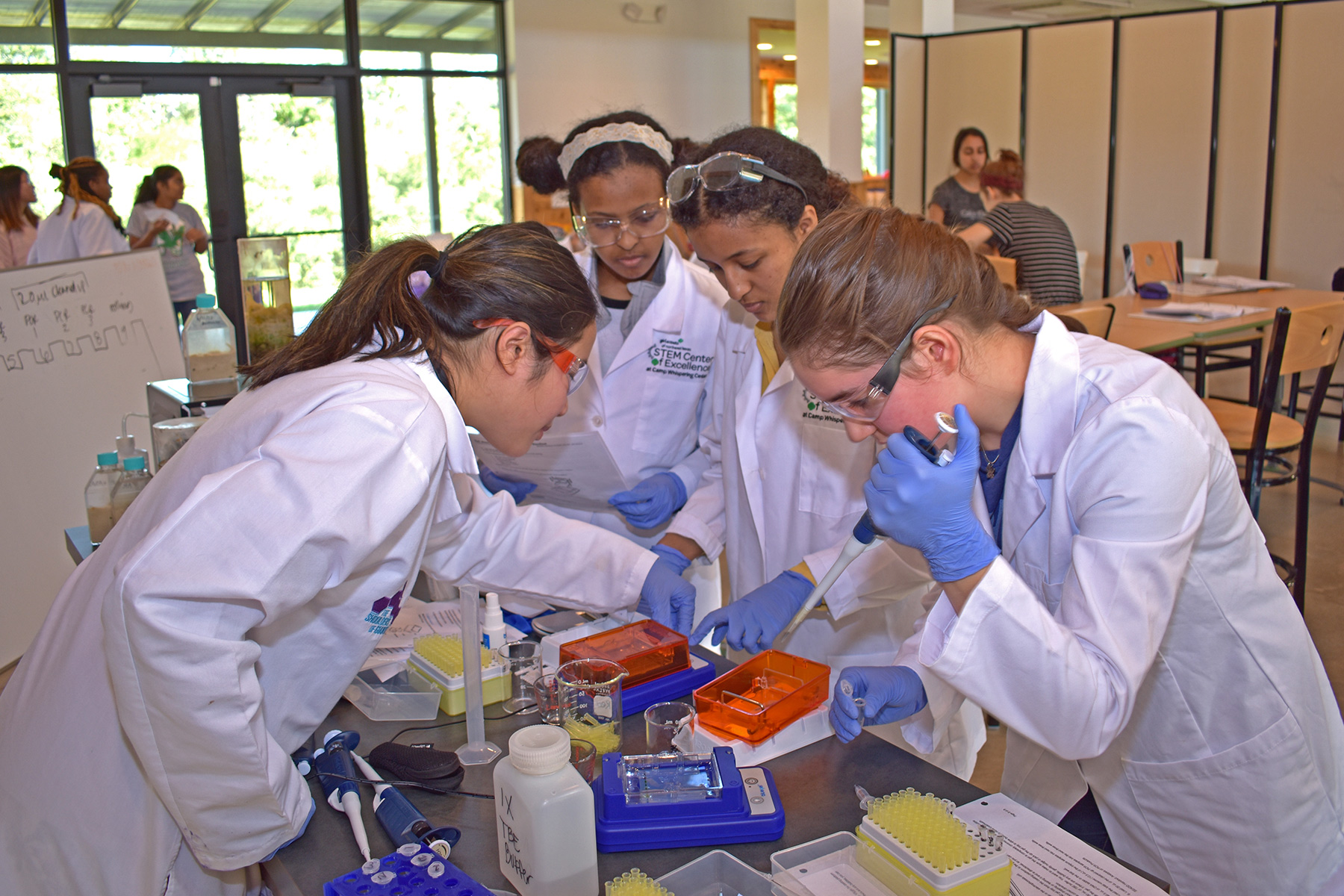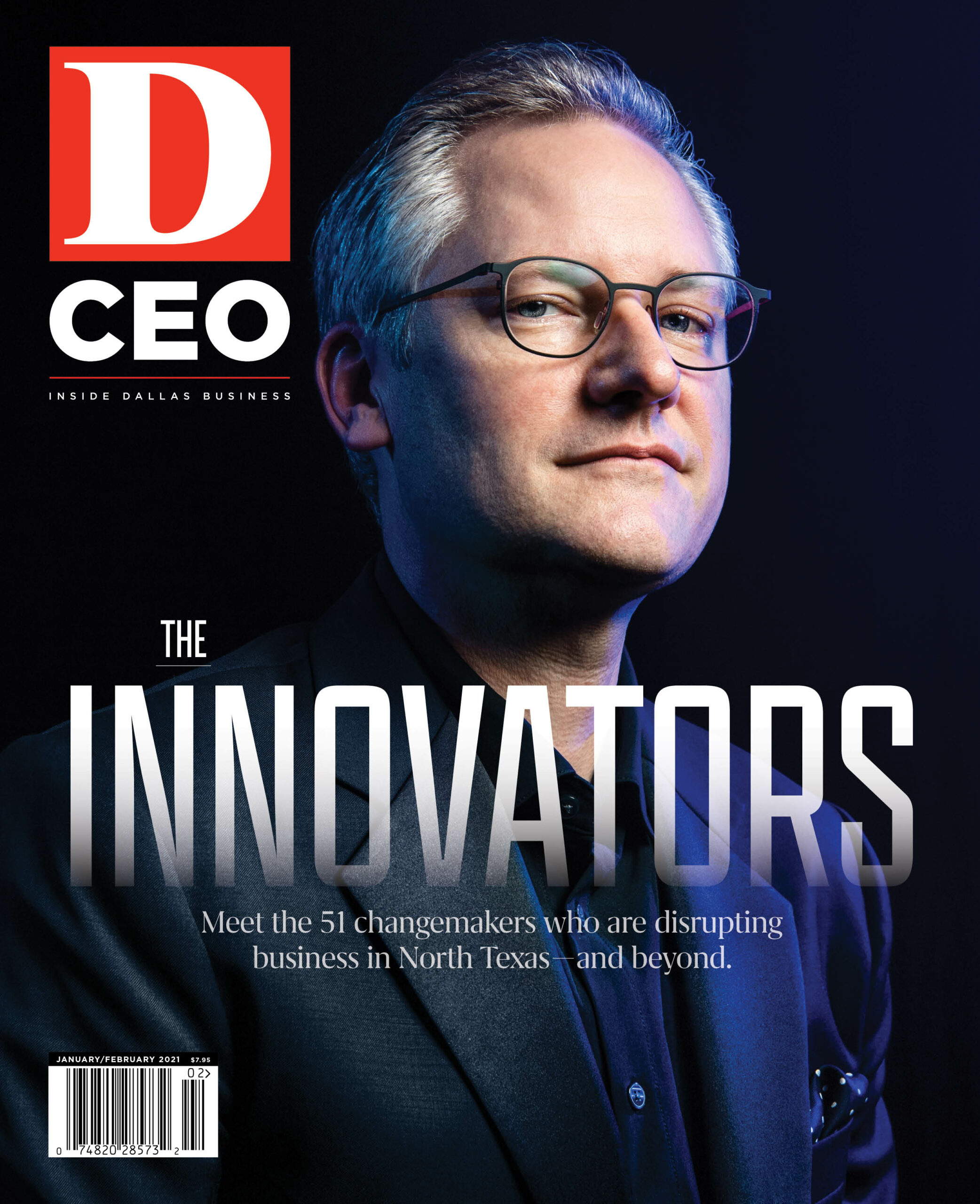Women make up more than half the total workforce, yet only 25 percent work in the tech industry—even when STEM jobs have grown 79 percent since the early 1990s. When it comes to STEM, there remains an under-addressed gender gap in opportunity and pay. Fortunately, the Dallas business community is working hard to elevate the profiles of women in senior technology and innovation roles and build the pipeline of the future.
Achieving a new standard in STEM starts early—elementary age, in fact. Studies have shown that girls often express an interest in STEM at around age 11, but by age 15 they have lost interest. Why?
Lack of female mentors and hands-on experience, as well as gender inequality in the STEM field, says Stacey Marx, president, AT&T National Business & Channels. “We are seeing some positive trends across the tech industry, but there is still work to do,” she says. Marx has been impressed with improvements, including more focus on leveling the playing field, more efforts around training and diversity, and more attention given to women in STEM. “When we celebrate and promote women leading in tech, we’re showing girls what’s possible and encouraging them to pursue their interests,” she says.
One place girls have plenty of opportunity to pursue STEM-related interests is Girl Scouts of Northeast Texas’ STEM Center of Excellence, a 92-acre, $15 million hub of inspiration. A sprawling living laboratory in South Dallas, it’s the first of its kind in the United States and provides year-round opportunities in robotics, computer coding, botany, chemistry, and more. Through the STEM Center of Excellence, Girl Scouts of Northeast Texas is feeding the STEM workforce pipeline to meet the urgent need for female voices, engagement, and leadership in the fastest growing sector of the U.S. economy.
“As you look at stats and research, we are starting to see more women go into STEM careers, such as certain life sciences and math, but when you look at areas like computer science and engineering, the numbers have decreased, which is the opposite of what we want to see,” says Jennifer Bartkowski, chief executive officer of Girl Scouts of Northeast Texas. “What we are hoping to do is connect with girls in the K-12 phase, so they remain interested in STEM. We have found that colleges don’t always teach to girls in ways that they think and learn, and some work environments don’t support women staying in STEM. When we can build girls’ confidence, self-esteem, and excitement about STEM early, they will stick with it—even when it becomes hard.”
A harsh light has been shined on the lack of women in STEM, creating a frenzy of activity designed to encourage girls and young women to enter and stay in the tech field, address the discrimination in hiring practices, and provide female mentors and role models to demonstrate success, says Valerie Freeman, CEO of Imprimis. “Even though a much larger percentage of college computer science majors are women, they are underrepresented in all STEM fields—but especially in the fields of AI, machine learning, data science, cybersecurity, and software programming,” Freeman says. “The number of female CIOs and CTOs in big firms in the U.S. has increased by a few percentage points but only to around 20 percent. Strides will continue to be made as long as CEOs and boards of directors focus on cultural change, which involves reducing barriers for women, providing support for diversity initiatives, eliminating harassment, and including women in opportunities for advancement.”
Among the reasons girls and young women avoid studying STEM and seeking careers in these fields is a subtle and early message from society that STEM jobs are for men, not women. The numbers tell the story, as only 13% of engineers and 26% of computer scientists are women. While companies often find value in diversity and want to add more women to their workforces, many young women who are initially interested in math or science aren’t always aware of the wide variety of STEM career paths. “This can lead them to switch majors before they graduate,” says Katie Mills, treasurer of the Dallas Society of Women Engineers. “Exposing young girls to the many flavors of STEM careers as well as providing mentoring to students and young professionals can help to build the pipeline for a more equitable future STEM workforce.”
Hattie Hill, president and CEO of the TD Jakes Foundation, says there is an unconscious and systemic bias within our country’s education system that pushes girls away from science and math, even when they show an interest. Plus, there are few female role models. “If young girls, especially young girls of color, can’t or don’t see people that look like them in STEM careers, it’s much more difficult for them to even consider these careers in the first place,” Hill says. “If companies are serious about diversity and inclusion, they need to make recruiting, hiring, and promoting women a priority, not just a talking point. The talent is out there. We just have to focus on closing that gap.”
According to a recent study by SmartAsset, the top cities for women in tech are Baltimore; Washington, D.C.; and Arlington, Virginia. Dallas ranked 54 of 59 cities in the study, even though Texas ranks second in the country for tech jobs. Despite this disappointing number, women leaders in STEM fields are beginning to sense a shift in the right direction in the Dallas area. For instance, the Dallas Regional Chamber recently formed a permanent Diversity, Equity, and Inclusion Council and hired its first Diversity, Equity, and Inclusion senior vice president. More women are moving into senior leadership roles in some of Dallas’ largest, most innovative tech companies. Many companies are incorporating ways for women in tech to learn and practice the skills they need for advancement, including corporate boards programs and formal mentoring programs.
The transformation has been slow, but Dallas is quickly gaining speed. “There is so much opportunity in Dallas, from large corporate headquarters to an increasingly significant number of startups peppering the landscape with innovation,” AT&T’s Marx says. “Businesses need technology more than ever to propel themselves into our new virtual world, and they need tech experts to help guide them.”
Sounds like a great job for a woman.
The goal of D CEO’s Women Leading Tech and Innovation initiative is to showcase executive women paving paths in critical roles in STEM across Dallas-Fort Worth, elevate the work of the business community in building the pipeline, and demonstrate the need for more diversity in these senior roles.
[img-credit align=”alignnone” id=” 837288″ width=”1024″]
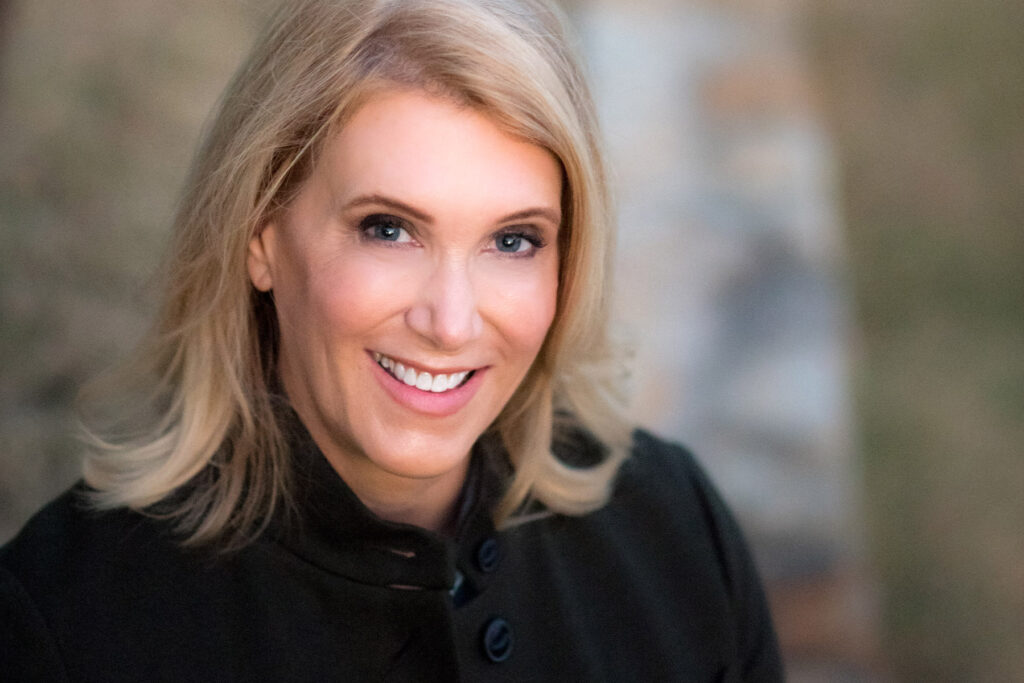 [/img-credit]
[/img-credit]Stacey Marx
President, AT&T National Business & Channels
Stacey Marx’s story is proof that anything is possible for women in tech. As a child, she couldn’t imagine going to a big city, much less living and working in one. Marx grew up in a small midwestern farming town where she practiced public speaking in a barn, standing on a ladder, and talking to cows. Her parents’ strict “no TV” rules fueled her love of literature and thirst for knowledge. In a town where everyone knew everything, Marx quickly learned how to get along with all types of personalities and the importance of relationships. She considers relationships and a strong personal network keys to career success and happiness. Her focus on people and passion for problem solving have helped propel her into successful careers in both finance and sales. She now leads a team of thousands of business professionals who support 95% of AT&T’s business customers nationwide.
[img-credit align=”alignnone” id=” 837284″ width=”1024″]
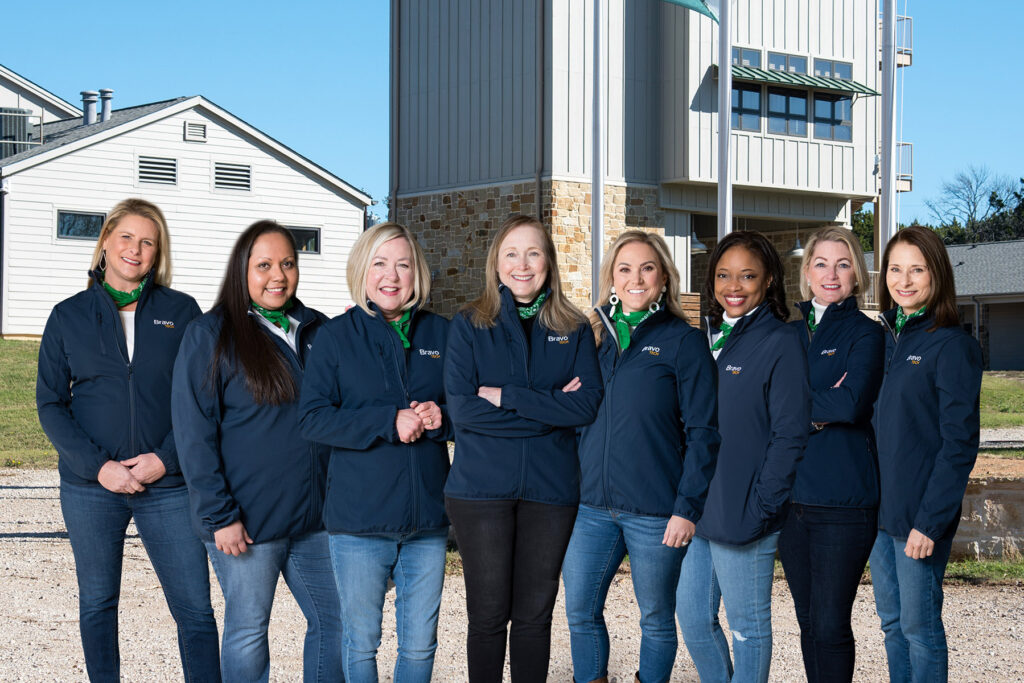 [/img-credit]
[/img-credit]BravoTECH
LinkedIn | Facebook | Twitter
BravoTECH salutes its own women in technology. It takes a talented team of people to make a company successful, and these women are a critical part of the Bravo team that has been recognized multiple times by the INC. 500/5000 and Dallas 100. BravoTECH also gives back to the community through involvement with technology organizations; mentoring through UTD and Technology Ball, the company’s own golf tournament raising funds for STEM education; and of course the Girl Scouts of Northeast Texas. Valerie Freeman, CEO of BravoTECH, was a Girl Scout, former board chair of the GSNETX, and former Girl Scout Woman of Distinction awardee. BravoTECH, celebrating its 25th Anniversary, is thrilled to shoot this photo at the amazing Girl Scout STEM Center of Excellence in Dallas.
[img-credit align=”alignnone” id=” 837287″ width=”1200″]
 [/img-credit]
[/img-credit]Quincy Preston
Publisher and Editorial Director, Dallas Innovates
The year 2020 tested and transformed us. “Technology has been a lifeline,” says Quincy Preston, publisher and editorial director of Dallas Innovates, a publication built to tell the stories about Dallas-Fort Worth game-changers and disruptors. The pandemic fast-tracked a digital transformation that was already underway. “That every company is a tech company has never been more true,” she says. A collaboration with the Dallas Regional Chamber, Dallas Innovates will continue to lift innovators’ voices as breakthroughs in 2021 continue. Expect even more experts in this region to solve challenges of the future. “We’re seeing more emphasis on diverse voices—different backgrounds and perspectives for new ideas and innovation,” she says. Stay tuned as Dallas Innovates tells the stories of women who lead by example and serve as role models for the next generation of leaders. “It takes diverse voices to drive growth through innovation,” Preston says. “We won’t be resting on our laurels in this region, because the future is now.”
[img-credit align=”alignnone” id=” 837286″ width=”1200″]
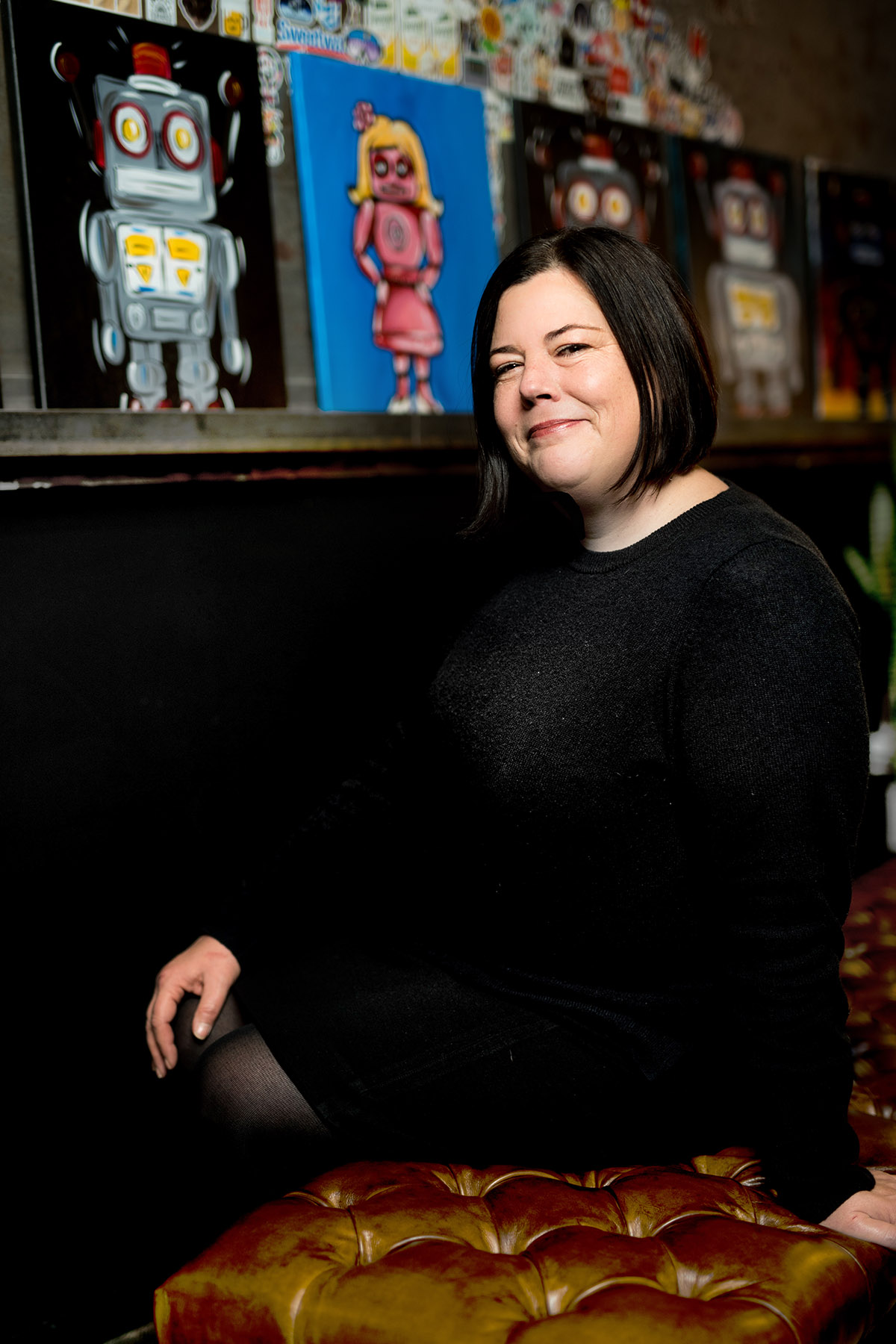 [/img-credit]
[/img-credit]Ellen Dowd
Senior Partner & Head of Growth, Dialexa
LinkedIn | Facebook | Twitter
Ellen Dowd brings more than two decades of experience to Dialexa, where she fuels the growth of the company’s future. Throughout her career, Dowd has helped dozens of Fortune 1000 companies drive results and disrupt their industries through technology. Dowd says she fell into the tech field, working for a major consulting firm at the beginning of the dot.com boom. “I got a taste of what it was like to be on the leading edge of innovative solutions that seemed impossible only a few years before,” she says. Since then, Dowd has made a career out of building businesses around those innovations. Dowd is proud to be a female leader in a field where she can take risks and apply her passion. “Progress shouldn’t equate to complacency,” she says. “I am inspired to see more women in tech, but now we need to see those same women in the boardroom.”
[img-credit align=”alignnone” id=” 837285″ width=”1200″]
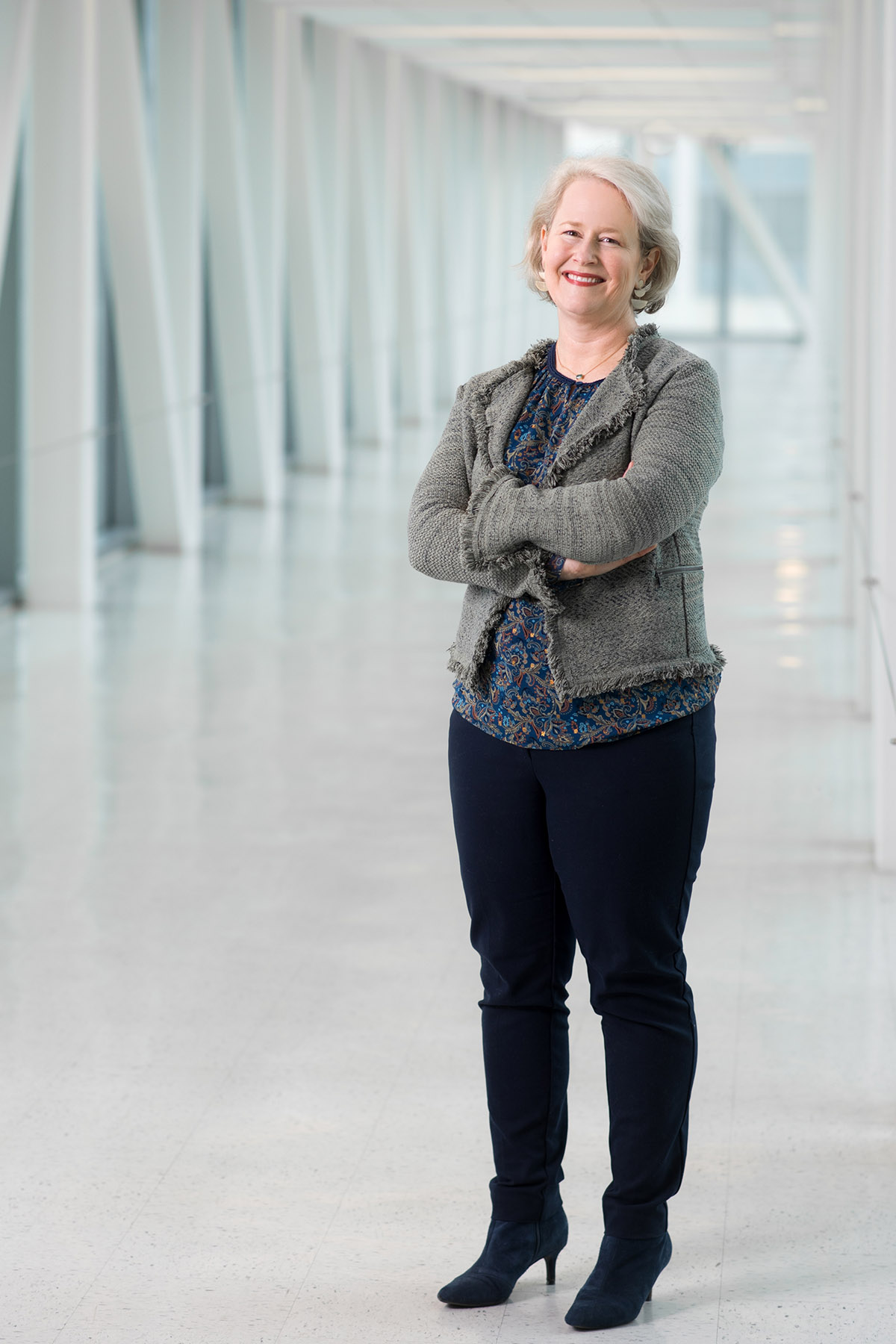 [/img-credit]
[/img-credit]Claire Aldridge, Ph.D.
Associate Vice President for Commercialization and Business Development, UT Southwestern Medical Center
Facebook | Twitter
Dr. Claire Aldridge is a STEM leader who inspires those around her, especially women also working in this space, whether in labs researching the treatments of tomorrow or VCs and philanthropists investing in life sciences. Her positions in technology commercialization, working with disease-specific nonprofits, development and venture philanthropy work, and biotech and life sciences investing all led to her serving today as a liaison between scientists and the community. She thrives when communicating about broadening the pipeline of commercialization opportunities for UTSW. “It is amazing to work in a field where you get to think about the breadth of the science and how it can make people’s lives better,” Aldridge says. “I enjoy discussing the impact of science – what it could solve and where we can take it – so philanthropic individuals can understand what their gift could mean, including changing the trajectory of a disease. At its core, this work is about serving patients and saving lives.”
Forging a Path: Advice From STEM Trailblazers and Leaders
“Use your network and your resources. There are a lot of classes, schools, and businesses ready and willing to train the next generation of female tech leaders. By talking with other girls and sharing your story, you’ll help close the gender gap and encourage others to do the same. The more visibility real women in tech get in the world, the higher the chance that a young girl will come across it and find inspiration.” —Stacey Marx, AT&T
“Explore as many different areas of STEM as possible to determine interests. There are coding bootcamps, robotics academies, and drone workshops. The proliferation of STEM educational programs for young people of all ages bodes well for future increases in the number of young girls interested in pursuing STEM careers.” —Valerie Freeman, Imprimis
“Nearly any problem you want to solve in the world today will have a science, technology, or math solution. STEM is changing the world, and if you want to have your hands in it and make a real difference, that’s where you will need to be. Ask questions. Science is all about trying and failing—that’s how we get it right.” —Jennifer Bartkowski, Girl Scouts of Northeast Texas
“Don’t be afraid to be a trailblazer. It may be hard and you may feel like quitting along the way, but when you think you can’t do it, or you aren’t good enough, hold onto this piece of advice my mother gave me: Everyone gets up in the morning and gets dressed, just like you.” —Hattie Hill, TD Jakes Foundation
“Determine what problems you want to solve, and then explore opportunities that allow you to think about those problems. Don’t worry about titles or money. Take a job, learn from it, and apply that knowledge to the next job. Keep an open mind and jump in with both feet. You’ll notice if a job doesn’t connect with your personal mission statement, it won’t be a good fit.” —Claire Aldridge, UT Southwestern
“Study what you are passionate about, and a career will work itself out, as education is a gift in and of itself. If you’re trying to follow a script in the early stages, you’ll miss opportunities.” —Ellen Dowd, Dialexa


